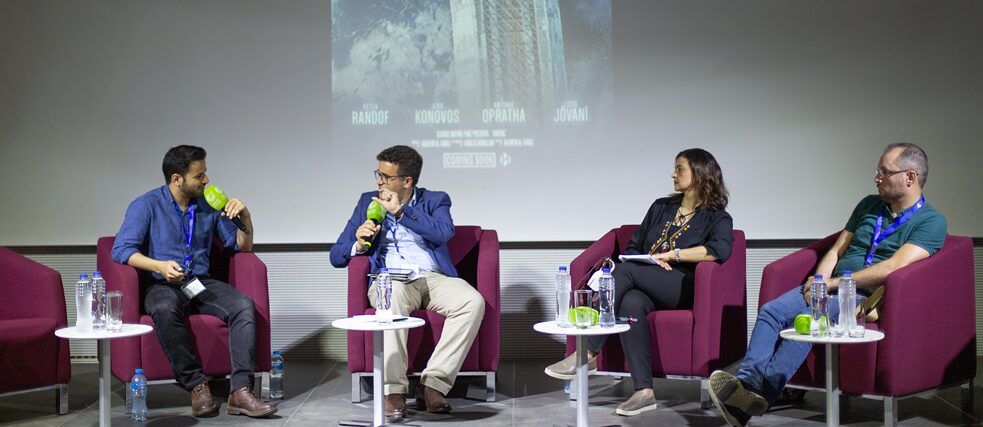“Science Meets Journalism”
Looking to the future with optimism

Science fiction has been dominated for decades by western influences. A discussion at the “Science Meets Journalism” conference of the Goethe-Institut in Egypt took a closer look at Arabic science fiction.
By Alessandra Reß
An entrepreneur uses boulders from outer space to construct a ring around the Earth. The gigantic structure is then used as a safe haven for the world’s rich – the poor have to make do with what is left over of the ravaged Earth.
This scenario forms the basis for “Orbit”, a film by the Yemeni video producer and science journalist Hashem Al-Ghaili, due for release at the end of 2021. His visually stunning short film “Simulation” became a hit on the Web, thanks to social media, and carried off several prizes at film festivals. An accompanying novel, “Simulation: The Great Escape”, also penned by Al-Ghaili, will be published in 2022.
His works typify the cautious mood of optimism which is currently reflected in the science fiction emerging in the Arab world. And it was this mood of optimism that Al-Ghaili discussed with film critic Ola Elshafei and screenplay writer Mohamed Sulaiman AbdulMalek in a panel discussion moderated by Ashraf Amin at the “Science Meets Journalism” conference. They started by jointly outlining the path taken in particular by the Egyptian fantasy and science fiction industry which, despite the superb storytelling tradition that exists in Egypt, especially in its rural regions, had little to show for many years beyond occasional genre titles such as Alaa Mahgoub’s “The Dance with the Devil”.
Difficulty of dealing with cultural taboos
Genre productions have recently increased, but there are still some hurdles to overcome, particularly in science fiction. These include relatively high production costs but also the difficulty of dealing with cultural taboos. The discussion about so-called hard science fiction, which consists of works with direct science-oriented or technological references, is a popular one; at the same time, however these references run the risk of coming into conflict with religious topics. Whereas these kinds of conflicts are tolerated in western productions, it’s a trickier issue for local publications, because a sense of distance is lacking.Many science fiction works from Arab countries are influenced by western films. The start of the film “Orbit” is very reminiscent of Neill Blomkamp’s “Elysium”, for example, and “Simulation” derives its inspiration from “the Matrix”. In this context, Hashem Al-Ghaili relates anecdotes of how he has published short stories on social media only to have readers tell him where they have previously read about his ideas. Although it may be difficult to find completely new themes in the densely packed science fiction market, Al-Ghaili’s films nevertheless reveal a culturally unique approach to topics such as societal separation or virtual worlds. Ola Elshafei too describes the way in which links are forged between western trends and the local cultural heritage, using the example of the vampire hype that has been adopted in Egypt, albeit with more “recognisably local” monsters.